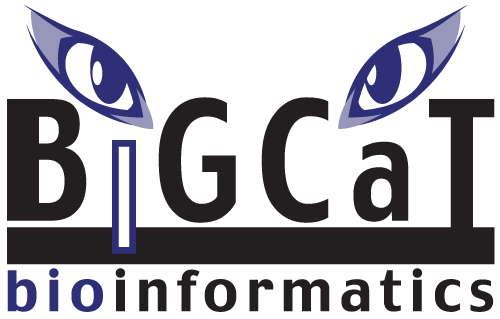Content Providers
-

OpenRiskNet
The main objective of OpenRiskNet is to develop an open e-Infrastructure providing resources and services to a variety of communities requiring risk assessment, including chemicals, cosmetic ingredients, therapeutic agents and nanomaterials.
OpenRiskNet is
* a virtual research environment for...0 events (10 past events)OpenRiskNet https://openrisknet.org/ https://tess.elixir-europe.org/content_providers/openrisknet The main objective of OpenRiskNet is to develop an open e-Infrastructure providing resources and services to a variety of communities requiring risk assessment, including chemicals, cosmetic ingredients, therapeutic agents and nanomaterials. OpenRiskNet is * a virtual research environment for predictive toxicology and chemical and nanomaterial risk assessment, * harmonising access to data and facilitating interoperability of software, * easily deployable to single computers, public and in-house cloud solutions, * addressing the needs of industry and academic researchers, risk assessors, regulators and informed public. OpenRiskNet (Grant Agreement 731075) is a 3-years project funded by the European Commission within the Horizon2020 Programme /system/content_providers/images/000/000/097/original/ORN-Web_Logo3.png?1533933310 -

Department of Bioinformatics - BiGCaT, Maastricht University
The department of Bioinformatics-BiGCaT is part of NUTRIM the school of Nutrition and Translational Research in Metabolism at Maastricht University, the Netherlands. It was founded in 2001 by Prof. dr. Chris Evelo aiming at employing bioinformatics approaches in systems biology to integrate...
8 training materials0 events (1 past event)Department of Bioinformatics - BiGCaT, Maastricht University https://www.bigcat.unimaas.nl/ https://tess.elixir-europe.org/content_providers/department-of-bioinformatics-bigcat-maastricht-university The department of Bioinformatics-BiGCaT is part of NUTRIM the school of Nutrition and Translational Research in Metabolism at Maastricht University, the Netherlands. It was founded in 2001 by Prof. dr. Chris Evelo aiming at employing bioinformatics approaches in systems biology to integrate experimental data and data with current knowledge. Integrative Systems Biology is being developed and applied in various research fields. The department has four core research areas; 1) Metabolic diseases, 2) Micronutrients, 3) Toxicity and risk Assessment and 4) Rare diseases. Within these areas different types of data, like transcriptomics, proteomics, metabolomics and (epi)genomics data, are collected , integrated and combined with existing knowledge /system/content_providers/images/000/000/093/original/logo_05_72dpi.gif?1528366508 -
WikiPathways
WikiPathways is a database of biological pathways maintained by and for the scientific community.
1 training materialWikiPathways https://www.wikipathways.org https://tess.elixir-europe.org/content_providers/wikipathways WikiPathways is a database of biological pathways maintained by and for the scientific community. /system/content_providers/images/000/000/660/original/wikipathways-logo-horizontal.svg?1668072305
